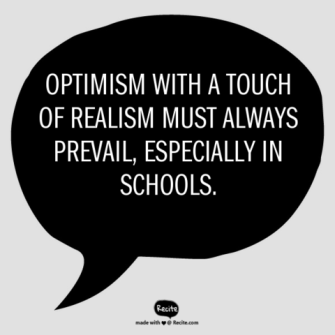
Opening day with the students and the excitement is undeniable. Being everything I wish for my son’s learning experience happens in my room despite the age difference.
For some reason in the classroom, I’m unafraid of being silly or tarnishing my serious reputation. How many high school teachers do you know that would come out wearing a witch’s hat to get the kids to smile?
It’s never too soon to smile and laugh with the students.
As many of you know, I was given a new role in my school this year and I’m eager for it to begin. Unfortunately, for one reason or another, the specifics haven’t been made clear and one of the major components hasn’t been mentioned to the staff yet.
Saying I’m concerned is an understatement, but I’m trying to stay optimistic.
Right now the biggest fear is that before the month ends, I will be expected to pick up two more classes, changing what was promised and having to start from scratch with new kids late. This always makes for challenges in establishing tone.
September is disjointed with all of the religious holidays and many of the routines will be established by the time we get to the important shifts in assessment school-wide, so any mandated changes that happen late can potentially generate ill-will or potentially less buy-in.
All this being known, my greatest effort must be in helping the school community develop for the benefit of the students. If I’ve asked to function in a different capacity, although I’m sure I’ll be disappointed, complaining won’t make it different. It’s important to model the behaviors I’d expect of my students or colleagues, so I would make the best of the situation.
Here are some practical tips for staying optimistic when things don’t work out as planned:
- Always have a plan b. It probably sounds cliche, but being prepared for everything will definitely soften the blow and it will make transitions easier.
- Although you may feel emotional, try to take the emotion out of it for now. Save that for personal time with friends you trust who will be able to listen. The students shouldn’t see or experience your anger or disappointment, as that isn’t their business or problem. Try to keep a good face on for them until you figure stuff out.
- Avoid talking about what happened in front of kids, as this also sets the wrong tone. Kids notice everything and are quick to make judgments. This is not their business, so save it for a different place.
- Be flexible and make the most of whatever happens. Life is fluid and so is teaching, so if you can roll with it, better for everyone.
- Try to see the big picture. Although it isn’t what was promised, perhaps it fits better to do it this way for the school. It does matter how you are treated, but administrators need to make hard decisions about what is best for the school and it may not always be clear at first.
- Be patient if you can. This will help with everything. Take a few breaths and focus on what you do have control of, your own space and the students you are responsible for.
Teachers need to be optimistic without losing sight of reality. It’s a tough but important and amazing job. Times will get tough, but there will always be something that reminds us of why we do what we do. Remember to focus on that.
How do you stay optimistic when things don’t work out as planned? Please share